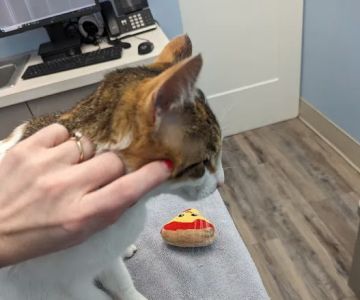When Was the First Veterinarian? A Look into the History of Veterinary Medicine
The veterinary profession has a long and storied history, dating back thousands of years. If you've ever wondered about the origins of veterinary medicine or when the first veterinarian came into existence, you're not alone. In fact, the history of veterinarians is as complex and varied as the animals they care for. So, when exactly did the first veterinarian appear, and how did the profession evolve over time? Let’s dive into this fascinating journey.
The Ancient Beginnings of Veterinary Medicine
The origins of veterinary care can be traced back to ancient civilizations. Evidence suggests that humans have been treating animals for disease and injury for as long as 4,000 to 5,000 years. In ancient Mesopotamia, for example, clay tablets were discovered that documented the treatment of horses, an essential animal in early agricultural societies. The ancient Egyptians, too, are known to have cared for their livestock and had an understanding of animal anatomy and treatments.
However, the first recorded instance of a veterinarian in the modern sense did not occur until later in history. In ancient India, around 2,500 years ago, a text known as the “Sushruta Samhita” detailed the care of animals and included what could be considered one of the first veterinary instructions. This early form of veterinary care was rudimentary compared to what we know today, but it was a start.

1093 Sandy Plains Rd, Marietta, GA 30066, USA
See DetailsEurope and the Rise of Veterinary Medicine
The title of the "first veterinarian" in history is often attributed to a Frenchman named Claude Bourgelat. In the mid-18th century, Bourgelat was instrumental in founding the first veterinary school in Lyon, France, in 1761. He was motivated by the need to combat an outbreak of cattle plague in Europe and to ensure the health of livestock, which was crucial for agriculture and the economy. Bourgelat’s veterinary school trained students to care for animals systematically, and it marked the beginning of veterinary medicine as a formal profession.
Before the establishment of veterinary schools, animal care was often provided by farriers, blacksmiths, and other workers who lacked formal training in medicine. Bourgelat’s establishment of the veterinary school helped elevate the profession, and soon after, similar institutions were founded across Europe and the United States, creating a more educated and specialized workforce.
Evolution of Veterinary Medicine: Modern Developments
Today, veterinary medicine has evolved far beyond its origins, with veterinarians receiving comprehensive education that includes studying animal anatomy, physiology, and pharmacology. The profession now spans a broad range of specialties, from small animal care to exotic animal medicine, and even veterinary surgery.
Modern veterinarians undergo rigorous training, including earning a Doctor of Veterinary Medicine (DVM) degree, which typically requires years of education and hands-on experience. In the U.S., veterinary colleges offer comprehensive programs that prepare students to diagnose and treat animals in a variety of settings, from private practices to research institutions.
The Role of Veterinarians in Today’s Society
Veterinarians today play an essential role in maintaining both animal and human health. The profession is not limited to treating pets; veterinarians are responsible for ensuring the health and safety of livestock, wildlife, and even animals in zoos and aquariums. They are also involved in food safety, disease prevention, and public health initiatives that protect humans from animal-borne illnesses.
Veterinarians also provide invaluable services during crises, such as natural disasters or outbreaks of diseases. Their expertise in animal health and welfare ensures the survival and recovery of various animal populations, which can also impact human communities. Through their work, veterinarians are key contributors to the health and wellbeing of animals and the people who rely on them.
The Future of Veterinary Medicine
As we move further into the 21st century, veterinary medicine will continue to grow and evolve. With advances in technology, veterinary practices are now using state-of-the-art equipment for diagnostics, treatments, and surgeries. Additionally, there is a growing emphasis on preventive care, nutrition, and holistic treatments in veterinary practices, offering a more comprehensive approach to animal health.
The increasing awareness of animal rights and the importance of ethical treatment in veterinary practices will also shape the future of the profession. Emerging fields such as veterinary neurology, oncology, and genetics are expanding, providing new opportunities for veterinarians to specialize and make groundbreaking contributions to animal health.
How You Can Support Veterinary Care
Whether you are a pet owner, a professional in the field, or someone interested in pursuing a career in veterinary medicine, supporting the profession is essential. You can start by choosing qualified veterinarians who adhere to high standards of care and by staying informed about the latest advances in veterinary science. If you're interested in helping animals, consider pursuing a veterinary career or volunteering at local animal shelters or veterinary clinics.
As we continue to look ahead, it’s clear that the legacy of the first veterinarians—such as Claude Bourgelat—has paved the way for a profession that remains crucial to the health of animals and humans alike. With ongoing innovations and an unwavering commitment to animal welfare, veterinary medicine will undoubtedly continue to thrive in the years to come.










